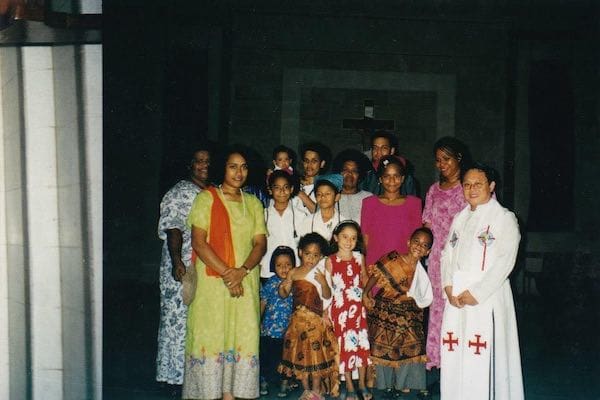Shaping my identity in my early twenties has been difficult since I am currently dealing with this nagging feeling that I’m stuck between two worlds. I am known among my relatives as the “white girl in a black girl’s body,” since the way I speak and my mannerisms make me seem very foreign. At the same time, the Black Lives Matter movement and recent conversations surrounding race have also made me painfully aware of my unavoidable blackness. No matter how educated I am or how “white” I apparently act, I am still a black woman and will still be seen as such.
Growing up in Australia, it has been hard to assert my identity as an ethnically Fijian person. Apart from attending Fijian churches when I was a kid, I have remained largely disconnected from the community.. Whenever anyone asks me where I’m “really” from, the answer gets stuck in my throat. I may be born of Fijian parents, but I have no real connection to their homeland. As irrational as it seems, I don’t feel comfortable claiming an identity that doesn’t belong to me.
A great deal of this disconnection goes back to language. Being understood and being able to communicate helps me to feel a stronger sense of belonging. I was never taught Fijian, which didn’t pose an issue in communicating with my parents since they were both educated in English. I’ve asked my parents many times why I was not taught the language, but have received different answers over the years. I was once told by my mother that it was a “useless language.”
This idea continued to play in my head whenever I ended up in situations where I was the only person who couldn’t speak Fijian. A cousin of mine lived with us for a few years. Whenever he and my parents spoke the language to each other at the dinner table, it effectively locked me out of the conversation. It was hard to not feel like a guest in my own home. I know that it’s never personal, but it was still a greatly upsetting and isolating experience. My dad makes a point to primarily communicate with me in English, but I hear my mum speak more Fijian than English. The fact that she primarily speaks a supposedly “useless” language that I don’t understand makes me feel very distant from her.
As one of the primary ways of maintaining a connection to one’s heritage, the fact that I don’t know the native language of my parents makes me feel like I have no right to claim my Fijian identity. I have heard stories of people in a similar position to me being able to reconnect with their cultures through language lessons. While I find that to be beautiful and inspiring, there aren’t many resources to help me learn the language in a way that will stick with me long-term, apart from a Fijian-English dictionary I’ve found in my house.
Nonetheless, I know that language isn’t the only way to engage with one’s culture. I used to try to do this primarily through religion, since Christianity is another strong pillar of Fijian culture. Though since discovering my bisexuality when I was 16, even that avenue feels compromised now. After the media storm concerning Israel Folau and his religious opinions concerning homosexuality, which most of the Pacific Islander community stands by, it is clear to me that I will face scrutiny and criticism from my family if I were to be open about my sexual orientation. It now also raises the question of whether I will be able to remain connected to my Fijian family in the future, or whether my identity and my values will further distance me from them.
Sometimes I fear I’m overthinking this, but these worries and thoughts still feel so real and tangible to me. I can’t simply ignore them or pretend they’re not important. I don’t want to end up completely cut off from my family in the future. I love them and cherish them despite our differences. But continuing to hide parts of myself means further cloaking myself in shame, and it’s not fair to continue to force that on myself either.
I don’t know how to talk to my parents about this. I fear doing so would make me sound like I am ungrateful for everything they have given me. Their hard work is the reason why I am able to live comfortably, and I hope they know how incredibly proud I am of them and of everything they’ve achieved since moving here. I also fear that I might come off like I am blaming them for this, but I know there is no one to blame. I know that this also has a lot to do with the ways I think and make sense of the world, as well as how my parents raised me. I know that my parents love me wholeheartedly and unconditionally, even if they disagree with or don’t understand some of my lived experiences, growing up here. I know that they’ve done the best that they could with what they knew, and I love them for that. I have become an honest and well-rounded person and a lot of that is thanks to them.
Part of it is wishful thinking. Even if I were to start intensively learning Fijian today, there’s no way I can make up for roughly twenty years of cultural disconnection. I sometimes wish that things had turned out differently, though maybe I will find a way to feel comfortable and secure in my identity whilst staying connected to my family. I might not know how that will work, but I’m eager to figure it out.





